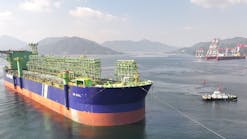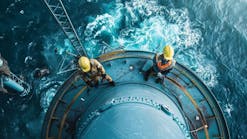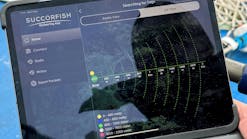The effects of the 1997 "Asian flu" that swept the global marketplace are continuing to heal, with the possible exception of Latin America. Asia began the collapse and now is slowly recovering. Latin America was the last region to be affected and is still weak. Oil industry reorganizations and political turmoil continue to be the dominant forces in the region, with no end yet in sight.
The major oil producers, Brazil and Venezuela, were helped greatly by the OPEC agreements constraining pro duction and improving prices. This refreshing of the government coffers with oil money is restoring some health, but it has not had time to work its way through the respective economies. That will take another six months to a year.
The anchor for the region has been Argentina, even with its major tie to Brazil, the largest economy on the continent. Its overall stability and maintenance of open market conditions sustained global investor interest in the region. Brazil's opening of offshore regions to international exploration has flooded the coastal areas with activity and opened a new (for them) proven, and very enticing, theater for international oil companies to develop.
Venezuela's political unrest is damping investor interest and will retard its recovery, even as Brazil regains its footing. The jump in crude oil price is similar to that of other oil producers. Whether the new cash flow will help the national oil business or be diverted for other purposes is not clear. Management changes at PDVSA seem to point away from developing the nation's treasures as was earlier expected. Prior licensing contracts may be at risk. While few open water offshore leases are involved, Lake Maracaibo redevelopment projects could be at risk.
Latin frontier
Latin America and South America, are continuing a significant transition: from strongman rule to more democratic structures. The process of re-evaluation started after the 1991 collapse of the USSR's economic system. The cold war superpower standoff between them and the united democratic front led by the US unleashed competition among former soviet clients for the oil investment dollar. It also confirmed the strength of more capitalist-oriented societies.
Increased competition and the subsequent OPEC oil price collapse placed national oil companies in an indefensible situation. They could not generate adequate income for their governments and they could not borrow sufficient funds to expand their oil field productivity. Their relatively slow responses and inherent inefficiencies as part of the government prevented them from adjusting to the fluid economic environment.
Some countries realized the problem and began to privatize. By carving up national companies and offering them to the international marketplace as joint stock entities, the countries attracted foreign investment, energized their economies, and created an environment where efficiencies could replace inefficiencies.
In South America the process began with the opening of Argentina. It spread to Venezuela and eventually Brazil. The recent turmoil in Venezuela will be constrained by the wider economic realities. Recent reports show that PDVSA has recognized the need to respond and is being more open and accountable to the government. The wider point is that Latin America is a "new" frontier with proven resources and significant future potential.
Eliminating pooling?
The pooling-of-interests method of accounting may be eliminated if a proposal by the Financial Accounting Standards Board (FASB) is adopted. The FASB has recommended that the purchase method be adopted as the standard for mergers because it makes it easier for investors to assign value to the respective business entities involved.
"When two different accounting methods are used for what is essentially and economically the same transaction, it is confusing to investors," said Edmund L. Jenkins, FASB Chairman. By using the purchase method, corporate net asset values are separated from goodwill. In the pooling method the asset values are blended with no assignment of specific asset value.
Comments on the proposal are requested by the FASB and copies are available on the website: www.fasb.org or by mail: Order Dept, 401 Merritt 7, PO Box 5116, Norwalk, CT 06856-5116. For telephone inquiries call 1-203-847-0700.
GTL plant starts
Arco started a 70 b/d pilot natural gas to liquids (GTL) plant at its Cherry Point Refinery near Bellingham, Washington, USA. The pilot plant is testing proprietary reactor designs for the autothermal reformer and Fischer-Tropsch synthesis reactor system. In the system, natural gas is converted into synthetic fuels and specialty chemicals. The fuels produced have no sulfur or aromatics.
The process holds great potential for smaller gas fields both onshore and offshore. When optimized, the process could be used on offshore platforms or floating production systems to produce very clean blending stocks for use with products from standard refinery runs.
French fight finishes
Total and Elf's struggle for control of French-flagged oil ended with Total as the dominant player. The chemical business, which would have been be spun off in Elf's proposal, will remain integrated with the upstream sectors.
The takover is a Euro 47 billion deal. Major savings will be realized by reducing headcount by 3,000, ostensibly by attrition. Thiery Desmarest, TotalFina Chairman, heads the new organization.
Y2K and GPS
The timing problem involving the date rollover (resetting) of older satellites in the global positioning system (GPS) resulted in no problems for boaters or aviators, according to the US Coast Guard and Federal Aviation Administration. The clocks on the GPS receivers were reset to zero on August 21, 1999. This could have been a severe problem for GPS satellites build before 1993.
The nature of the resetting issue is similar to the larger Y2K issue for older computer systems. The success of the GPS resetting is an encouragement for a successful Y2K rollover as clock dates change from 1999 to 2000 in computers worldwide.






